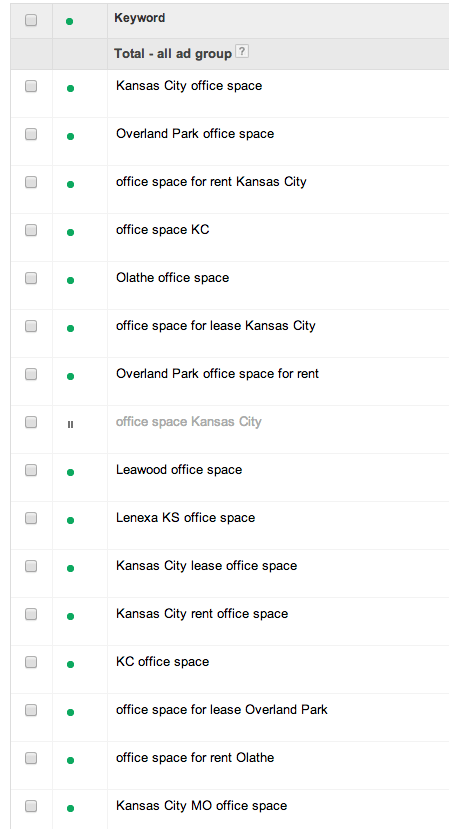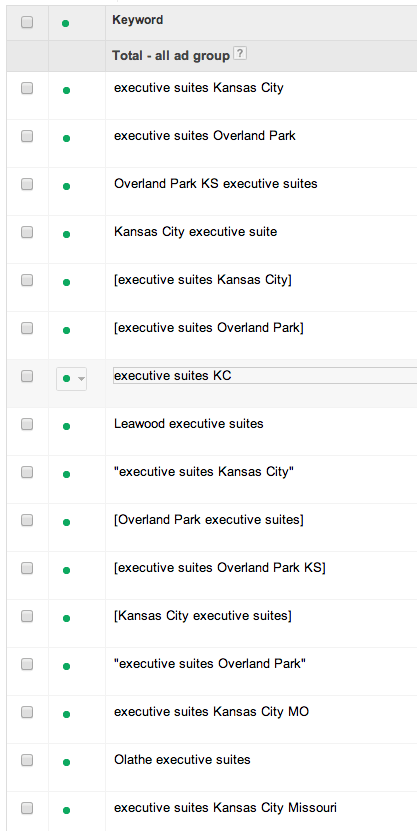 Many business owners get confused on the positioning of their geographic modifier relative to their core keyword – i.e. “kansas city office space” vs “office space kansas city”. In this case, “kansas city” is the geographic modifier, and “office space” is the core keyword. Should the geo-modifier come before or after the core keyword?
Many business owners get confused on the positioning of their geographic modifier relative to their core keyword – i.e. “kansas city office space” vs “office space kansas city”. In this case, “kansas city” is the geographic modifier, and “office space” is the core keyword. Should the geo-modifier come before or after the core keyword?
While this seems tricky at first, it’s actually fairly simple to diagnose. First understand that you should always combine using a keyword combiner tool so that your overall keyword list incorporates both. Taking a look at the screenshots below (note that keywords are sorted by impressions), you can see that when people search for “office space,” they are putting the geo-modifier in front more often; however, in the case of “executive suites” they are searching with “kansas city” after the core keyword. We have this data from the business’ Adwords campaigns, which gives us some very accurate numbers of course – as it’s direct from Google itself.
What if you don’t utilize Adwords? I suggest using Google’s Keyword Planner to check on all of the keyword combinations you can come up with and sort them from most searched to least. Then take the most searched keywords and use those for your page titles and on-site content. As far as your blog is concerned, you should mix it up and use as many keywords as possible in your blog posts, but only focusing on one keyword per blog post.
For example, this business shouldn’t use “office space for lease in overland park” as a keyword in page titles, but should do a blog post with this keyword as the focus at some point along the way. Another example… “executive suites kansas city” is one of their top keywords, and should be one of the main keywords in their page title(s) and on-site content, but “executive suites kansas city missouri” is not searched for nearly as often and something that would be the focus of a blog post only.
In summary, find out what keywords are used most often and use this short list as the focus of your page titles and on-site content – and then use the less frequently searched keywords on your blog. When trying to determine whether the geo-modifier should go in front of or after your core keyword, let Google answer that question for you – whether via Adwords or their Keyword Planner.
This will help you with your positioning in the SERPs on local searches. If you need help, contact me through our Blogger Local corporate site.














